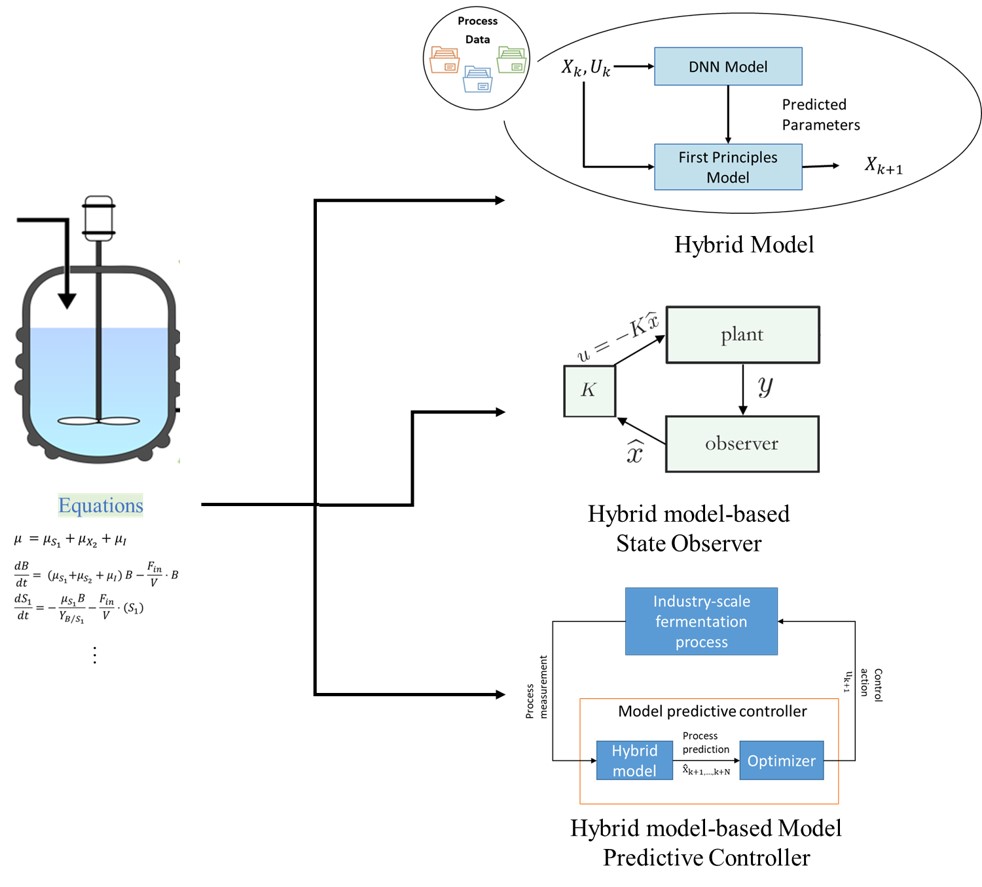
Kinetic modeling of fermentation processes is challenging due to complex micro-organism reactions and incomplete system knowledge. We have developed a hybrid modeling approach that combines kinetic and data-based models to improve accuracy and robustness. By integrating a deep neural network (DNN) with the kinetic model, we predict uncertain parameters and capture time-varying dependencies. The developed model is tested against an industrial-scale fermenter with a capacity of over 100,000 gallons. In the chemical industry, digital twins and optimal control algorithms are important for profitability. To overcome the challenges of limited sensors and infrequent measurements, we design a multi-rate state observer and a model predictive controller (MPC) for an industry-scale fermentation process to optimize input profiles and enhance productivity while considering process constraints.
Literature:
Shah, P., Sheriff, M. Z., Bangi, M. S. F., Kravaris, C., Kwon, J. S. I., Botre, C., & Hirota, J. (2023). Multi‐rate observer design and optimal control to maximize productivity of an industry‐scale fermentation process. AIChE Journal, 69(2), e17946.
Shah, P., Sheriff, M. Z., Bangi, M. S. F., Kravaris, C., Kwon, J. S. I., Botre, C., & Hirota, J. (2022). Deep neural network-based hybrid modeling and experimental validation for an industry-scale fermentation process: Identification of time-varying dependencies among parameters. Chemical Engineering Journal, 441, 135643.
